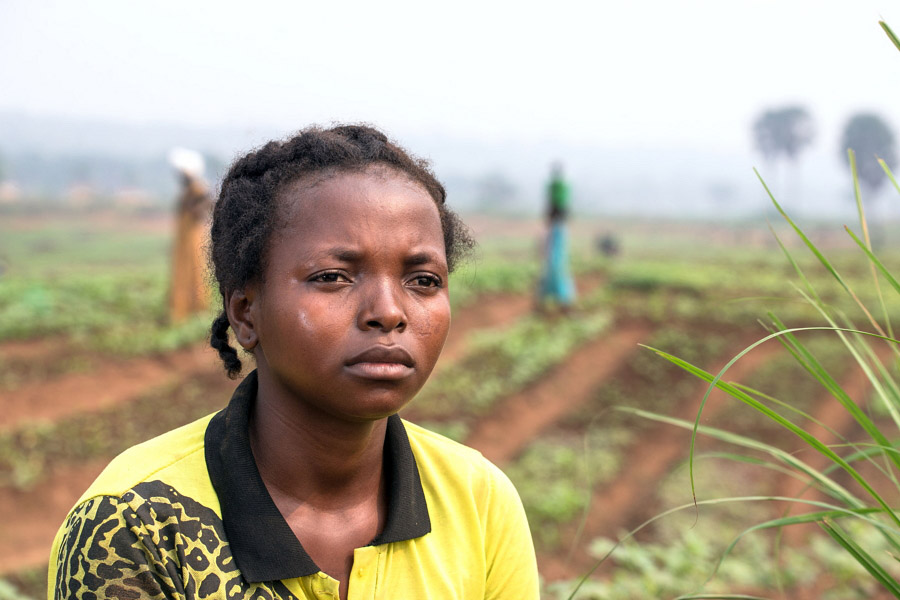A large number of people in the Democratic Republic of the Congo (DRC) are experiencing severe or acute food insecurity, making it the world’s worst food security catastrophe. There are places like the province of Tanganyika where food insecurity is so bad that famine and starvation-related fatalities are all but certain. The Democratic Republic of the Congo (DRC) has the worst food crisis in the world, according to the Food and Agriculture Organization (FAO). Only a fraction of the DRC’s cultivable land is now in use. This is problematic since the nation relies so heavily on food imports, and border restrictions caused by the epidemic have disrupted those supplies. However, this may pave the way for agricultural progress to quicken as a result.
Reasons for Food crisis
The food crisis in the DRC results from a number of interrelated causes. Violence and instability have isolated whole villages, causing a decline in agricultural output. The state of the world’s a transportation and communication networks is dismal. Many individuals are not getting the nutrients they need because of rising food costs and decreasing wages even in areas where food is not in short supply. As the nation has been in the midst of a complicated and prolonged crisis for nearly two decades, COVID-19 has only served to compound the devastation caused by natural catastrophes. The local currency has plummeted and millions of people have lost their employment, particularly those in the informal sector, as a result of the outbreak and the efforts to control it. Farmers’ ability to access inputs and markets has been hampered, productivity has dropped, and crops and animals have been wiped off owing to a combination of causes including the aftermath of the coronavirus and insecurity.

Activities to cope with the challenge of the Food security crisis
Many initiatives are in progress to address food insecurity over the long term. In order to safeguard smallholder farmers from losses caused by weather-related shocks, WFP is cooperating with the World Bank to implement the DRC’s 15-year National Program for Agricultural Development. Farmers in DRC are especially sensitive to climate changes and other external shocks like droughts, floods, worm and locust infestations because of their extreme poverty and remoteness. The R4 Rural Resilience Initiative is the flagship strategy for integrated climate-risk management that WFP uses to assist smallholder farmers to become more resilient to climate threats. The DRC government and insurance industry are in the process of developing a sustainable agricultural index insurance plan, and the WFP is helping them do so by providing agricultural machinery and technical support.
The program’s overarching goals are to reduce gender inequality and empower women by supporting smallholder farmers engaged in family farming as they transition to a market-oriented form of agriculture; to do so, they will build the skills of small farmers so that they can produce more food; to enhance their access to markets; and to store, transport, and sell their surplus at a profit. The majority of smallholder farmers accepted and applied better agricultural methods, such as the use of agricultural equipment and tractors, as a consequence of Farmer Field Schools being set up. Warehouses, marketplaces, literacy centers, and drainage scuppers are just some of the community assets that have benefited from the rehabilitated feeder road and increased smallholder output, decreased post-harvest losses, and increased market participation. All of these and other accomplishments were made possible by the efforts of the DRC government (particularly at the province and territory levels) and collaborating partners, such as national and international non-governmental organizations.
When confronted with threats to food security, the adaptability of farmers is an extremely important factor in the development of coping methods. The amount of socioeconomic opportunity they have available to them has a role in the degree to which they are able to adapt. A variety of organizations, including the government, Non-Governmental Organizations (NGOs), and private tractor dealers, such as Tractor Provider, one of the most successful tractor dealers in the DRC, collaborate to provide assistance. Examples of this type of assistance include the provision of coping strategies for communities, the provision of funding for research institutes to produce crop varieties, the provision of appropriate agricultural machinery, agricultural insurance, capacity-building for farmers, the provision of chances for a secure income, and the provision of credit and extension service, amongst other examples.
What might Tractor Provider DRC be capable of?
Tractor Provider DRC sells tractors, farm implements and agricultural machinery to farmers in the Democratic Republic of the Congo. This includes Massey Ferguson tractors in DRC, New Holland tractors in DRC, combine harvesters, and more. It is possible that smallholder farmers in DRC might profit from Tractor Provider’s capacity to provide tractors at lower pricing. The DRC-based firm Tractor Provider DRC offers reasonably priced tractors and other agricultural machinery to local farmers. These farmers in the DRC can now kick back and take satisfaction in their work, all thanks to Tractor Provider DRC.
